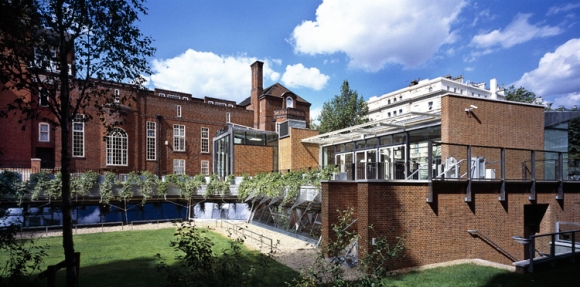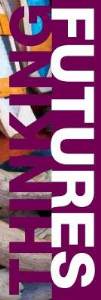Politics and Matter
Research cluster at the School of Geographical Sciences, University of Bristol
Behaviour Change and Psychological Governance – ESRC Seminar Series 2013-2015
10-5pm, 24th March 2014, The Hepple Room, School of Geographical Sciences, University of Bristol
This seminar series aims to investigate as yet unanswered aspects of the debate over Behaviour Change and the use of psychology in techniques of governing. Specifically, we do not know enough about the effects of psychological forms of governance on national populations and specific social groups. Nor do we know what alternatives to Behaviour Change might look like if they were informed by participatory, observational or interpretive social science methods rather than economistic or behavioural science techniques and paradigms.
The seminars will discuss the Behaviour Change agenda in its wider context – in relation to how our cultural ideas about the brain, mind, behaviour and self are changing. Participants from a range of social science disciplines will identify research, practical and political challenges posed by the current policy enthusiasm for particular branches of positive psychology, wellbeing, happiness, flourishing and ‘mindfulness’ in order to examine two original aspects: (a) the cumulative effect, or unintended consequences of the use of psychology in public policy, and (b) the underlying assumptions and principles on which they are based.
The first seminar will be held at Bristol University’s School of Geographical Sciences and focuses on building a contemporary and critical understanding of the relationship between space and behaviour. Seeking to avoid the past mistakes of a now- discredited behavioural geography and overcoming some of the blind spots of environmental psychology, this theme considers how best to conceptualise the spatial framing of human behaviours without unwittingly reviving the spectre of environmental determinism.
Participants for this event include Professor Graeme Evans (School of Art & Design, Middlesex University London), Dr Monica Degen (Sociology and Communications, Brunel University London), Dan Lockton (Royal College of Art, Helen Hamlyn Centre for Design), Professor Eve Edelstein (Institute of Place and Wellbeing, University of Arizona) and Dr Margaret Tarampi (Department of Psychological and Brain Sciences, University of California, Santa Barbara). For more information, please follow the link above.
RGS-IBG 2014 CFP: Geographies of skilled practice and co-production
Two members of the Politics and Matter cluster – Joanna Mann and Merle Patchett – are organising a session to be held at the annual RGS-IBG conference this summer on the theme of skilled practice and co-production. If you’d like to take part then we’d love to hear from you! Details below:
Call for Papers: 2014 RGS Annual Conference, London 26-29 August 2014
Geographies of skilled practice and co-production
Session abstract: What is the place of skilled practice in the 21st century? Does the frenetic pace of life and availability of new technologies augur the death of skill or are we simply becoming skilful in different ways, in different settings and through different means? Where past conceptions of skilled practice have focussed on notions of the solitary artisan refining techniques alone or under a master in the workshop, geographers are increasingly paying attention to the ways in which skill is co-produced between different actors (both human and non-human), technologies and materials in and across a variety of temporal and spatial scales, contexts and settings. In this session we thus want to make space (and time) for papers that offer theoretical reflections on skilled practice and processes of becoming-skilful, as well as papers that showcase committed empirical engagements with skilled practice and its geographies of co-production.
As such we invite papers exploring, but by no means limited to:
* The place(s) and relevance of skill in contemporary life
* Theoretical reflections on skill and becoming-skilful
* The learning and refining of skills – i.e. how is skill co-produced?
* The ethics and/or politics of skilled-practice as a form of co-production
* Ethnographies of skilled practice
* The influence of technology and the non-human within skilled practice
* The use of ‘skill’ as a geographical research tool
* Challenges of witnessing and articulating skilled practice
* What counts as ‘skilled’ practice?
If you are interested in participating, please submit an abstract of no more than 250 words to Joanna Mann (Joanna.mann@bristol.ac.uk) and Merle Patchett (Merle.patchett@bristol.ac.uk) by Friday 7th February 2014.
***
Longer version: Geographers have long worked with skilled practitioners to co-produce research in a whole variety of contexts. Recent examples include DeSilvey et al’s (2013) stories of menders in Southwest England, Richard Ocejo’s (2012) examination of cocktail bartenders, and Patchett et al’s (2011, 2012) collaborative re-workings of taxidermy specimens. In all of these instances, the work carried out is trying to access knowledge which is rooted in deep practice and elucidate it for means of preservation, theoretical exemplification, or the passing on of techniques.
Meanwhile, theoretical insights from outside of geography are changing understandings of what it means to co-produce skill itself. Anthropology, for instance has shown how skills are generated in fields of force and through circulations of materials that cut across boundaries (Ingold, 2013; 2000). Sociology has highlighted how skills develop within processes, and become highly attuned to problems the more it is honed (Sennett, 2009). Meanwhile academics working within the theoretical realms of new materialisms have emphasised a move away from these romantic inflections to look at the capricious and unruly matter of matter, further enabling geographers to look at the materials of co-production without negating new technologies as forms of skilled practice in themselves (Bennett, 2010; Connolly, 2013).
Furthermore, the recent turn towards practice-based inquiry has witnessed academics using their own skills, both new and existing, as part of their research. James Ash (2012; 2013) uses his existing skills of video gaming to theorise affect, temporality, and technicity, whilst Tim Ingold (2000; 2013) often draws on his experience of cello-playing to illustrate arguments. The task of becoming proficient in such skills has also proven to be strong academic fodder whilst interrogating topics as varied as glass blowing (O’Connor, 2007) and corncrake counting (Lorimer, 2008). Yet, the skilled practices involved in academic work itself – both of writing and research methodologies – can also provide a fertile ground for thought, as evidenced by recent insights on archival methods (Lorimer, 2010), innovative phonographic work (Gallagher and Prior, 2013), and performative writing practices (Dewsbury, 2014), amongst others.
In this session we want to move beyond the plethora of methods advocating ‘make-do’ techniques and DIY cultures and make space (and time) for papers that offer theoretical reflections on skilled practice and processes of becoming-skilful, as well as papers that showcase committed empirical engagements with skilled practice and geographies of co-production.
If you are interested in participating, please submit an abstract of no more than 250 words to Joanna Mann (Joanna.mann@bristol.ac.uk) and Merle Patchett (Merle.patchett@bristol.ac.uk) by Friday 7th February 2014.
Crafting: Materials, Ecologies, Economies
Thinking Futures is a week-long Festival to share and celebrate research from the University of Bristol’s Faculty of Social Sciences and Law. This year members of the Politics and Matter research cluster are hosting the event Crafting in collaboration with local craft practitioners. This panel event will showcase ongoing research and coproduction in the Faculty on questions of crafting, materialism, community economies, and ecologies of thought and action. Primarily the session will highlight what emerging social theoretical perspectives can offer in terms of rethinking the place and power of craft and craftwork in the contemporary world. Is the recent revival of handicrafts a romanticisation of past worlds, or does it tell us something about our contemporary condition? Can past and present practices be shown to resonate? Can craft generate new forms of community activism which allow us envisage alternative economic futures? How does an engagement with the intricacies of craft practices alter the way we understand ecologies of thought, action, and process?
In this event, three dialogues, between theory and practice, will take up these questions and form the basis for an open discussion:
CRAFT PRACTICE.
Dr Merle Patchett (Bristol University) and Peter Summers (Taxidermist) on “The Craft of Taxidermy and Re-Drawing an Ethic of Apprenticeship”
CRAFTING COMMUNITY.
Joanna Mann (Bristol University) and Vicky Harrison (Owner of Paper Village and local ‘craftivist’) on “Crafting Community”
CRAFTIVISIM.
Dr Naomi Millner (Bristol University) and Jethro Brice (Bristol-based artist) on “Craft, labour and the commons”.
Chaired by Dr Mark Jackson, the panel will consider the importance of craft and craftwork to broader questions of political, economic and social change. The audience will be encouraged to participate in thinking material futures through craft and to question the craft of experience. Conversation will roll into a wine reception, where further interactive discussion will take place, and practices will be on display.
The event will take place on Friday 8th November 6.00-7.30pm at The Kitchen, The Station, Silver Street, Bristol BS1 2AG. Tickets are free, but seats are limited. Please order yours through the eventbrite system on the Thinking Futures website.
Bodies and Affections in Shane Carruth’s “Upstream Colour”
Over the past week I have been somewhat haunted by Shane Carruth’s latest offering, “Upstream Colour”, to such an extent that I feel compelled to reflect upon its visceral beauty. The task of finding a way in, of getting a purchase on Carruth’s film, is, however, by no means straightforward. Whilst the film certainly has a plot, Carruth makes little use or no use of the traditional signposts that we might expect to find in the cinematic experience. In a style that both reflects and refines that of his debut, the time-travel thriller “Primer”, Carruth uses the cinematic experience to challenge temporal conventions of linear causality, such that the whole idea of a plot as such has to be re-thought. The sheer complexity of the film’s encounters and happenings suggest an understanding of plot based instead upon the mutual entanglement of beings, whether human or otherwise. Whilst the film is pervaded…
View original post 1,352 more words
‘ALIVE 2013’ – Towards Primary Abundance?
Earlier this month I was fortunate enough to attend ALIVE 2013, a one-day international symposium on adaptive architecture at the Chair for Computer Aided Architectural Design (CAAD), ETH Zürich. Organised by Manuel Kretzer, the day featured keynote presentations from Professor Ludger Hovestadt (ETH Zürich), Professor Philip Beesely (University of Waterloo) and Professor Kas Oosterhuis (TU Delft).
Throughout all three of the sessions, I was struck by the power of architecture (and particularly of contemporary architectural experimentation) to disturb any sense of a clear-cut boundary between the natural and the artificial, and to establish novel – and perhaps sometimes unnerving – material encounters. As Kretzer pointed out in his introduction, developments in both ‘smart’ materials and digital connectivity are facilitating approaches to architecture in which the built environment is no longer defined as that which resists change. The goal of the architect, therefore, is no longer to achieve rigidity in the face…
View original post 524 more words





